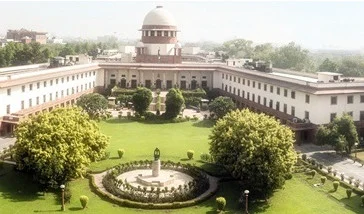Anwarulhaq
New Delhi, January 18, 2024: In a significant development, three convicts from the infamous Bilkis Bano murder and gang rape case, sentenced to life for gang rape and murder during the 2002 Gujarat riots, have urgently sought an extension to surrender before jail authorities. The plea by convicts Govindbhai Nai, Mitesh Chimanlal Bhatt, and Ramesh Rupabhai Chandana was brought before the Supreme Court on Thursday.
Justice B.V. Nagarathna led bench, acknowledged the urgency but emphasized the need to reconstitute the original judgment bench (herself and Justice Ujjal Bhuyan) for proper due process. The court directed the registry to seek Chief Justice N.V. Ramana’s instructions for the reconstitution of the bench and listed the applications for tomorrow’s hearing.
The convicts are reportedly seeking extensions ranging from four to six weeks, citing various reasons. Nai claims ill health and responsibility for elderly parents, Chandana cites his son’s upcoming wedding, and Bhatt requests time to conclude an on-going crop harvest.
These convicts were released prematurely in August 2022 under Gujarat’s remission policy after serving 14 years.
However, On January 8, in a landmark decision in the Bilkis Bano gang rape case, the Supreme Court set aside the Gujarat government’s grant of remission to 11 convicts who were sentenced to life imprisonment for murders and gang rapes, including that of Bano during the 2002 Gujarat riots. The court ordered them to surrender to prison within two weeks. In its criticism of the remission order by the Gujarat government, which was based on a fraudulent interpretation of the May 2022 apex court judgment, a bench of Justices BV Nagarathna and Ujjal Bhuyan held that the Gujarat government was not the appropriate authority to make decisions in such matters, as the trial was held in Maharashtra.
On the May 2022 order, Justice Nagarathna observed, ‘In our view, when no intervention was called for in the writ petition filed by one of the convicts, Radheshyam Shah, this court was misled to issue directions contrary to the law based on suppressions and misstatements made by the convict-petitioner.’
The judge emphasized that the Gujarat government, aware of its incompetence, should have filed a review petition challenging the 2022 order, stating, ‘The State of Gujarat, however, failed to file a review petition seeking a correction of this court’s order. Had the State of Gujarat filed an application seeking a review of the said order and impressed upon this court that it was not the appropriate government, but the State of Maharashtra was, ensuing litigation would not have arisen at all.’ The division bench of the Supreme Court labelled the entire process as a breach of the rule of law.
This landmark judgment comes after a prolonged legal battle, underscoring the judiciary’s commitment to upholding justice and the rule of law in cases of grave human rights violations.
With the deadline looming, the convicts are now seeking extra time, raising questions about justice, legal procedures, and the enduring impact of the 2002 Gujarat riots. Further developments, including potential pleas from other convicts, are expected as the reconstituted bench considers these crucial extension requests. The case continues to garner nationwide attention, spotlighting issues surrounding justice and the aftermath of the historical Gujarat riots.

